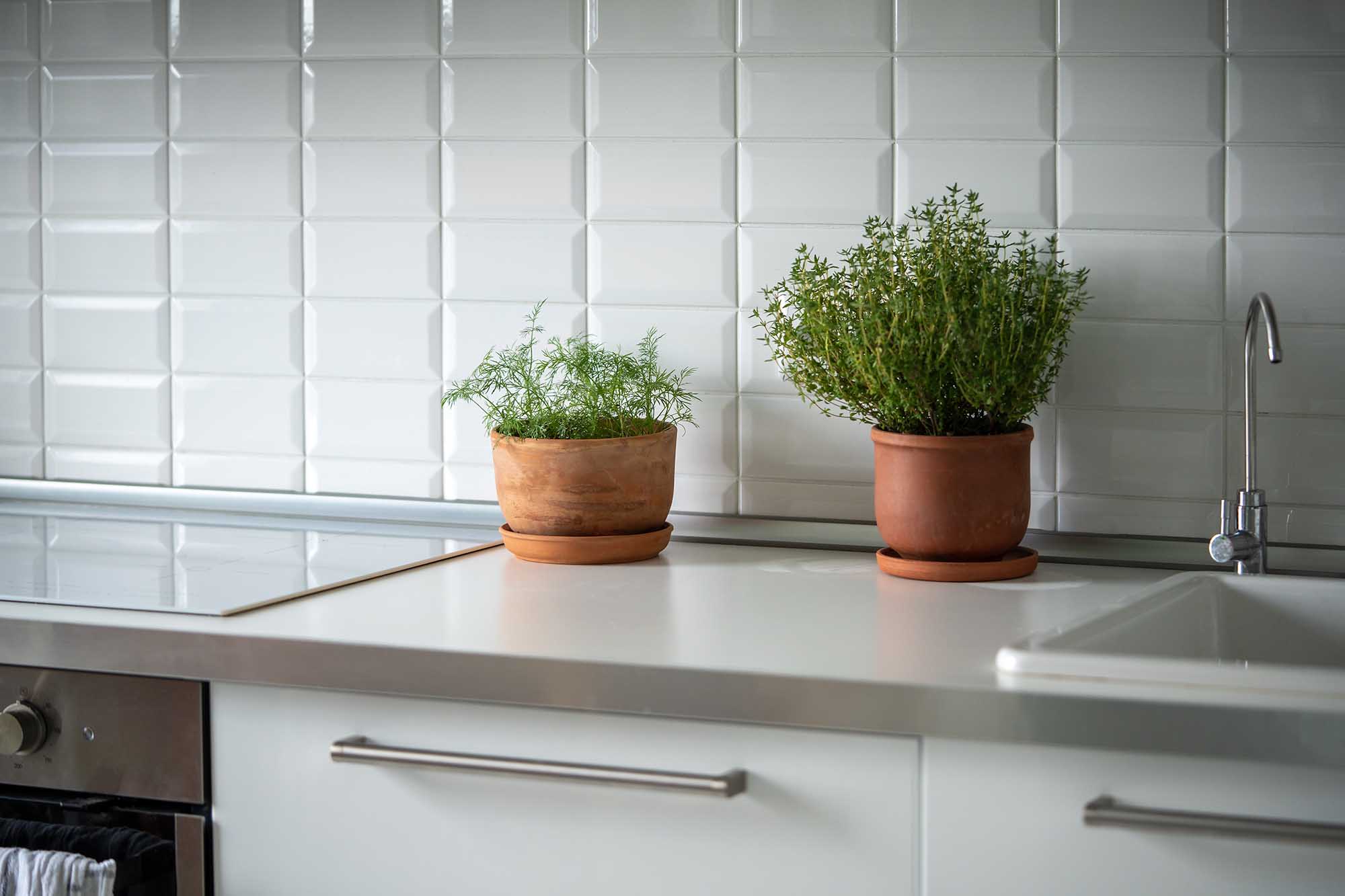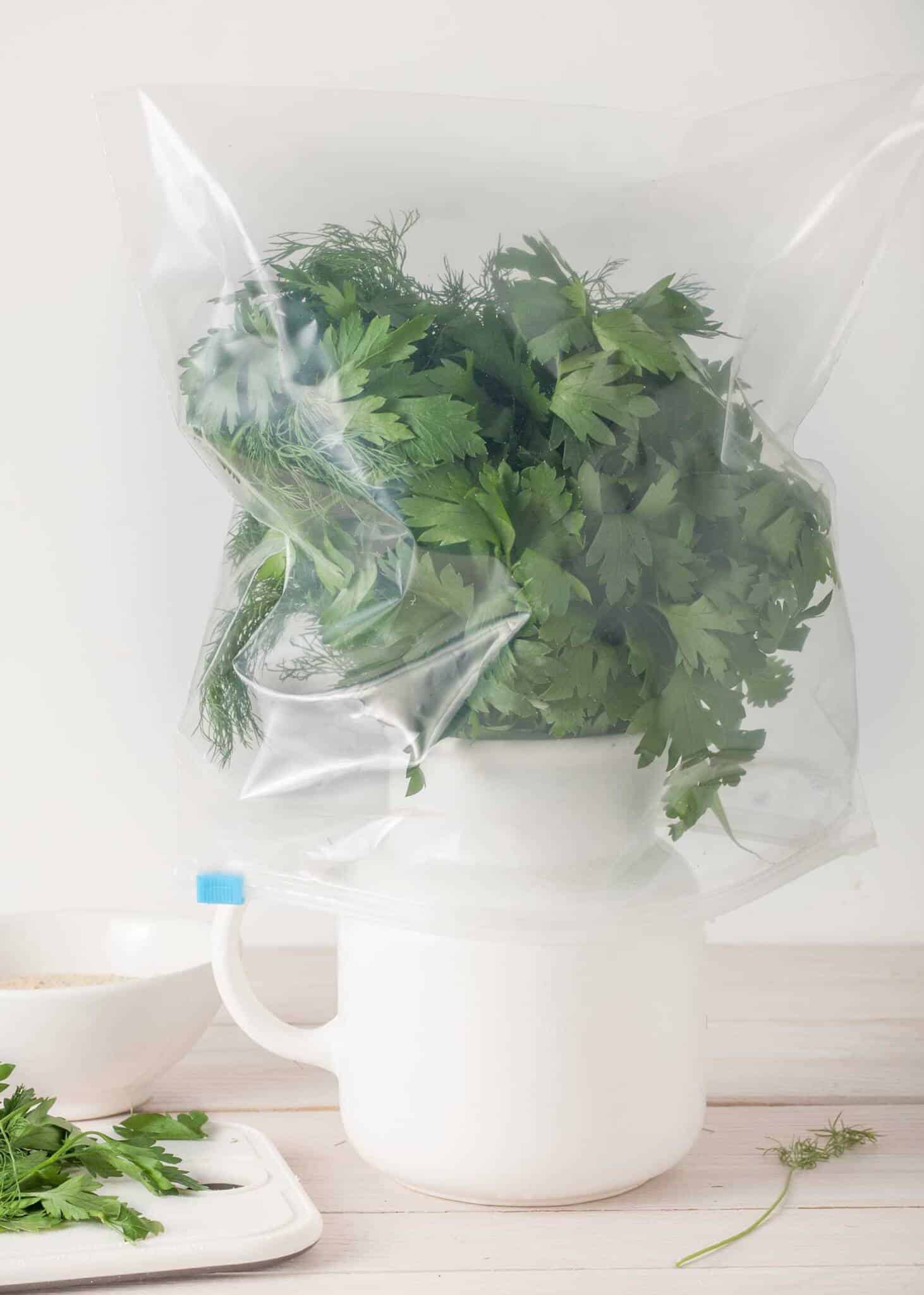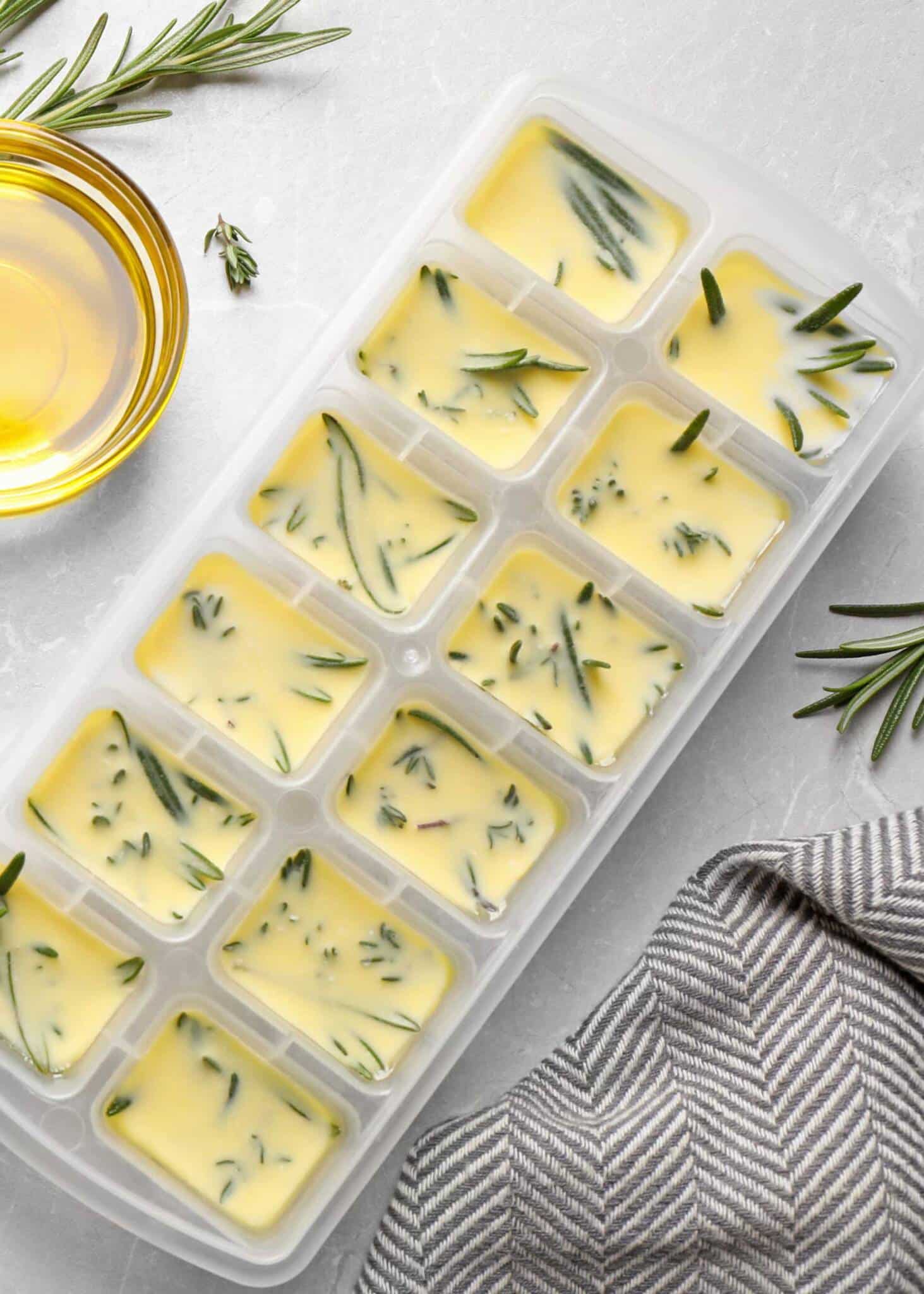It’s a familiar story: you buy a beautiful bunch of fresh herbs with every intention of using them. Then, a few days later, you’re reaching to the back of the crisper drawer to find they’ve wilted or, worse, become slimy. Then in the bin they go.
This frustrating cycle of waste is not just a personal problem, it’s also a waste of resources and money.
Australians toss out around 7.6 million tonnes of food every year, and to translate that on a personal level, each household throws away around 300kg of food per year. That’s a third of all the fresh food we buy, which adds up to a whopping $3800 every year!
Image via Getty

How to store fresh herbs
That bunch of herbs may seem small, often at 3-5 bucks a pop, the cost add up. Learning how to store fresh herbs correctly will not only reduce how much food waste you’re sending to landfill, it’s also going to save you money in the long run.
All it takes is a little effort and some proper storage, and you can drastically extend their shelf life. By the time you finish reading this, you’ll be the guardian of greens, the saviour of coriander, the rescuer of rosemary – I’ll stop now.
But, most importantly, you’ll be doing your small bit to reduce food waste. Here’s how to store your fresh herbs properly so they stay fresh and last longer – so you actually eat them.
Soft Herbs: Coriander (Cilantro), Parsley, and Mint
Water Jar Method: Think of them like a bouquet of flowers. Trim the stems, remove any lower leaves, and place them in a jar with an inch of water. Cover loosely with a bag or reusable silicone pouch and store in the refrigerator, changing the water every 3-4 days.
Paper Towel Method: Wrap the herbs in a slightly damp paper towel and place them inside a resealable plastic bag. Keep the bag in the crisper drawer of your fridge.
Sustainability, straight to your inbox
Fortnightly tips, stories, and inspiration to make living greener easy

Woody Herbs: Rosemary, Thyme, Oregano, and Sage
Loose Storage: These herbs prefer a slightly drier environment than their soft counterparts. Simply place them in a loose paper bag or wrap them in a paper towel, then put them in a resealable bag with some air inside. Store in the fridge.
Chives and Spring Onions
Upright Storage: Similar to the soft herbs, store chives and green onions upright in a jar with an inch or so of water. This will keep them hydrated and crisp. Don’t forget to cover with a loose plastic bag and change the water every few days.
Dill and Tarragon
Hybrid Method: Dill and tarragon are a bit trickier since they are somewhere between soft and woody. Start with the water jar method, but be ready to switch to the paper towel method if they begin to wilt prematurely.
Basil – A Special Case
Room Temperature Storage: Unlike most herbs, basil prefers room temperature. Store it in a jar of water on you kitchen bench, away from direct sunlight. Change the water every couple of days.
How to save those sad and wilted herbs
Sometimes, despite our best intentions and efforts, we find ourselves with herbs that are not so fresh. Before you consider them a lost cause, here are some simple ways to revive and repurpose your sad herbs to give them a new life.
Rehydration Technique: Place the wilted herbs in a bowl of cold water for about 10-15 minutes. For herbs like coriander (cilantro) and parsley, this can help revive their crispness. After soaking, drain and pat dry with a paper towel then store as previously shown.
Pesto or Herb Sauces: Basil might be the traditional choice for pesto, but nearly any herb can be transformed into this delicious sauce. Combine wilted herbs with nuts (like pine nuts or almonds), garlic, cheese (Parmesan or pecorino), nutritional yeast for vegans, a little olive oil, and a squeeze of lemon in a food processor. This can be stored in the fridge for around a week or frozen in ice cube trays for longer storage.

Herbed Oils and Butters: One of the yummiest ways to give those sad bunches a fresh life – turn them into an herby oil or butter.
Simply blend or process them with a good quality olive oil or melted butter. Strain if necessary. Pour the infused butter into an ice cube tray to freeze and use them to zhuzh up your next dish. It’ll make you feel fancy.
Drying for Later Use: If your herbs are past their prime, consider drying them.
Spread the herbs on a baking stray and place them in an oven set at its lowest temperature. Once dried, store them in an airtight container. While dried herbs won’t have quite the same potency as fresh ones, they can still be flavourful.
Flavourful Broths and Stocks: This one’s super simple. Chuck them in your next batch of stock.
Wilted herbs can add a lot of flavour to homemade stocks and broths. Just add the herbs whole to your pot alongside the other ingredients.
Herb Ice Cubes: Similar to the preservation method mentioned previously.
You can still freeze wilted herbs in water or oil. They might not look as vibrant, but they’ll retain much of their flavour. Pop the herb ice cube directly into your recipe.


